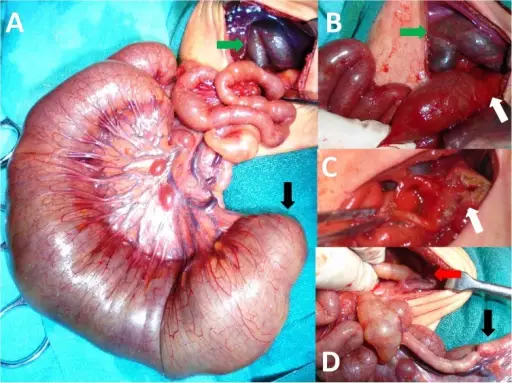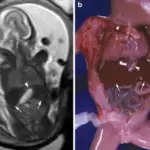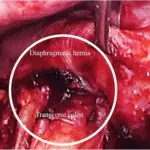Atresia is any congenital malformation of the structure of the intestine that causes bowel obstruction. These defects can either occur in the small or large intestine.
What is the Pathology of Atresia?
The pathology of atresia is:
-Etiology: The cause of atresia is when there is not enough blood flow to the intestines during development. Due to this, the affected intestine either scars or may be reabsorbed.
-Genes involved: CLMP, DHCR7, EFTUD2.
-Pathogenesis: The sequence of events that lead to atresia are: An intrauterine intestinal ischemia due to vascular pathology followed by resorption of the bowel is the possible explanation for the development of intestinal atresia.
-Histology: The histology associated with atresia are: mucosal edema, congestion, ulceration, flattening of villi, submucosal oedema, prominent vascular proliferation, fibrosis, haemorrhage, gangrene, calcification.
How does Atresia Present?
Patients with atresia typically are both males and females with gestational age of 37 weeks or more. The symptoms, features, and clinical findings associated with atresia include jaundice, dark yellow or brown urine, pale or clay-colored stools, enlarged liver, and weight gain.
How is Atresia Diagnosed?
Atresia is diagnosed by blood tests, liver biopsy, ultrasound, and nuclear scan.
How is Atresia Treated?
Atresia is treated by surgery in the first days of life, giving fluids by placing an intravenous IV line into a vein, nasogastric tube to empty the stomach and keeps gas out.
What is the Prognosis of Atresia?
The prognosis of atresia is excellent when the condition is diagnosed and treated properly. The prognosis is also good for babies with more severe atresia or with associated anomalies, although they will require more advanced, long-term medical care.



